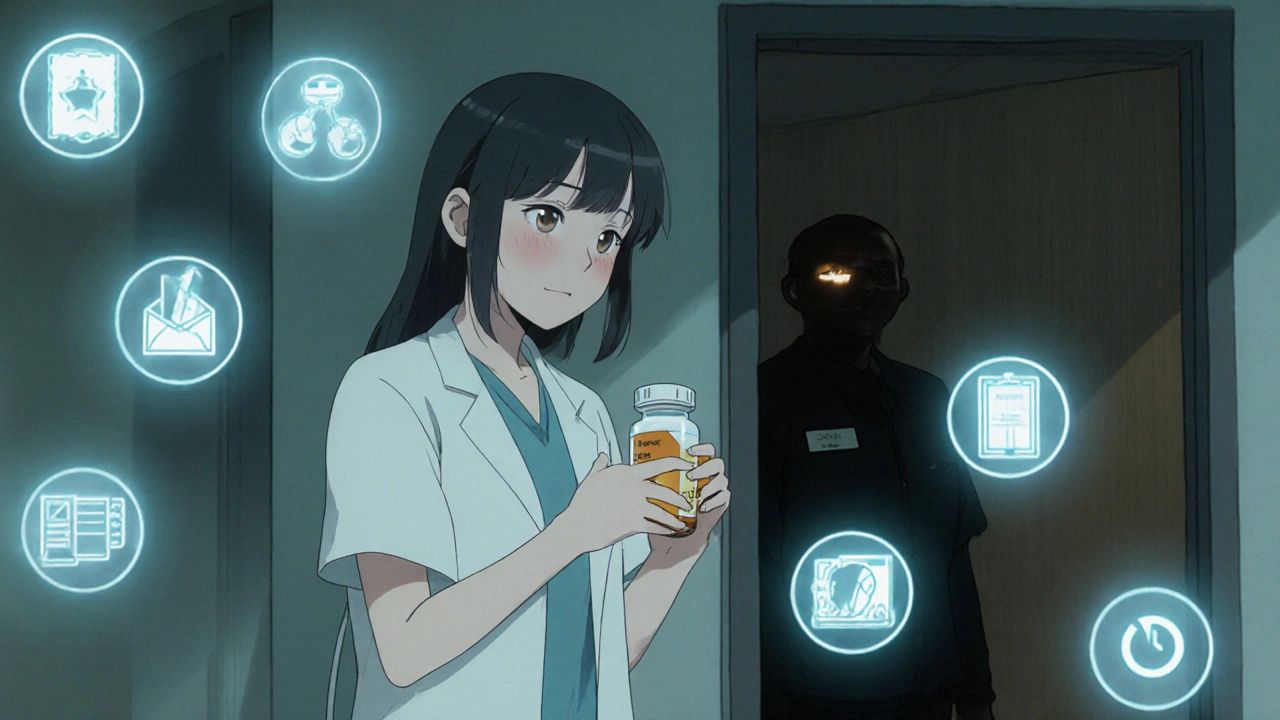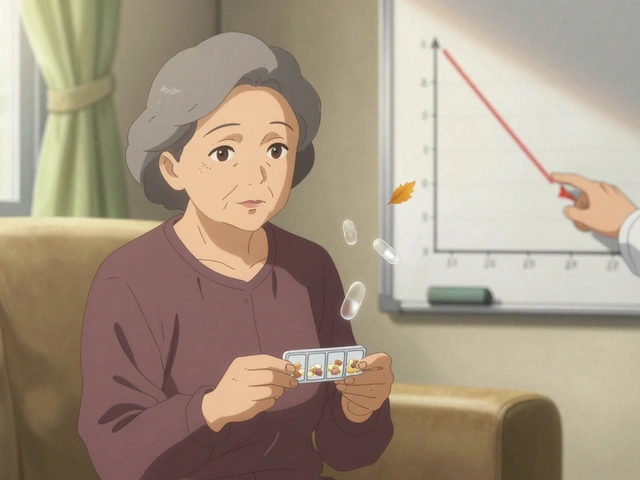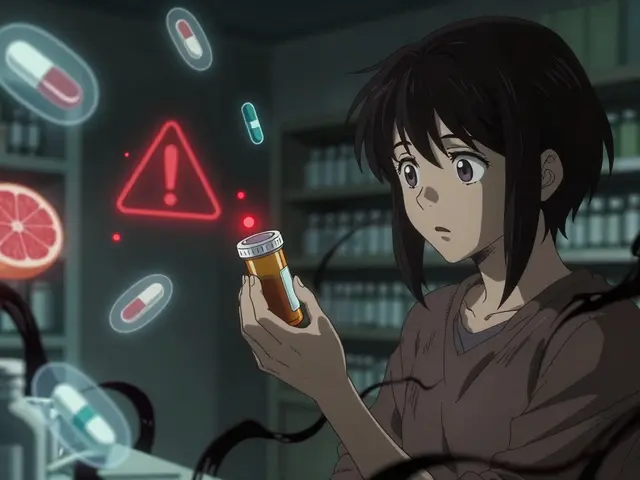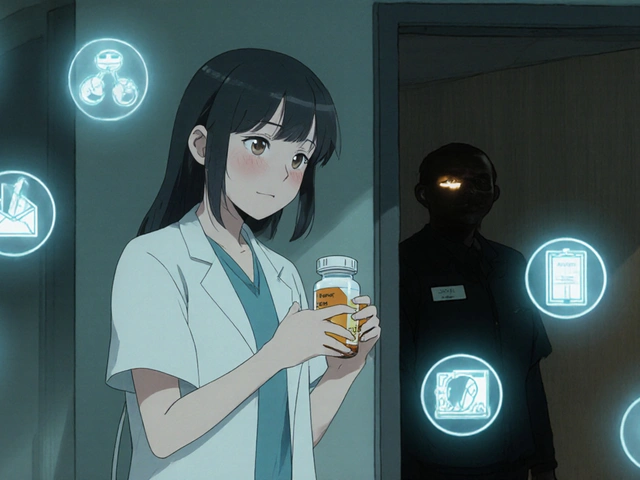How to Report a Medication Safety Concern to Your Clinic

When you notice something off with your medication-maybe the pill looks different, the dose feels wrong, or the pharmacist gave you the wrong instructions-you might wonder: Should I say something? The answer is yes. And you don’t need to wait for a crisis. Reporting a medication safety concern at your clinic isn’t just helpful-it’s one of the most powerful ways you can protect yourself and others.
Why Reporting Matters More Than You Think
Most people think medication errors only happen in hospitals. But they’re just as common in clinics. A 2022 study found that 87% of preventable drug-related harms were caught early because someone spoke up-often a nurse, pharmacist, or patient-before the mistake reached the patient. That’s not luck. It’s because clinics have systems in place to catch these mistakes before they cause harm. These systems exist because of a 1999 U.S. government report that revealed between 44,000 and 98,000 people die every year from preventable medical errors. Since then, every accredited clinic in the U.S. is required to have a way for staff and patients to report safety issues. And it’s not about blame. It’s about fixing broken processes. A clinic that encourages reporting sees nearly five times more safety reports than one that punishes mistakes. That’s because people feel safe speaking up.What Counts as a Medication Safety Concern?
You don’t need to be a doctor to know when something’s wrong. Here are common signs you should report:- The medication looks different from your last refill (color, shape, markings)
- The dose or frequency doesn’t match your prescription
- You were given a medication you don’t recognize or weren’t told about
- You’re experiencing new symptoms after starting a drug
- You received someone else’s medication by mistake
- A label is missing, unclear, or has typos
- You were told to take a drug with food, but the instructions say otherwise
How to Report: Step by Step
Reporting is simple, but doing it right makes a difference. Follow these steps:- Act quickly. Report the concern the same day you notice it. The sooner you report, the faster the clinic can investigate and prevent others from being affected.
- Gather details. Write down or remember: the name of the medication, the dose you were supposed to get, the dose you received, when you took it, and any symptoms you noticed. If you have the pill bottle or packaging, keep it. A photo of the label helps too.
- Choose your reporting method. Most clinics offer multiple ways to report:
- Speak to the front desk or receptionist-they can connect you to the safety officer
- Ask to speak with a nurse or pharmacist directly
- Use your clinic’s online patient portal (if they have one-68% do)
- Call a dedicated safety hotline (42% of clinics offer this)
Don’t be turned away. If someone says, “That’s not our job,” ask to speak with the Patient Safety Officer. Every accredited clinic has one. That’s a federal requirement since 2020.

What Happens After You Report?
After you report, here’s what you can expect:- Within 2 hours: You’ll get an automated confirmation (most clinics do this)
- Within 24 hours: Someone from the clinic will contact you to thank you and ask for more details
- Within 72 hours: You should receive a follow-up explaining what they found and what they’re changing
For example, if you reported that your blood pressure pill looked different, the clinic might discover that the pharmacy switched brands and forgot to update the label. They’ll fix the labeling system, train staff, and notify everyone else who got that batch. That’s how one report stops ten more mistakes.
Some clinics even send you a short email or letter saying, “Thanks to your report, we changed how we verify prescriptions.” That kind of feedback matters. A 2023 survey found that 74% of patients felt respected when they got a follow-up. Only 26% did if they heard nothing.
What You Shouldn’t Do
Avoid these common mistakes:- Don’t wait. Delaying a report makes it harder to trace the error. Memory fades. Labels get thrown away.
- Don’t go straight to the FDA. The FDA’s MedWatch system is for serious, widespread problems. Your clinic’s system is faster and designed to fix local issues. If they ignore you, then go external.
- Don’t assume it’s “not a big deal.” Insulin, blood thinners, and heart meds are involved in 60% of serious medication errors. Even small mistakes can be deadly.
- Don’t be afraid to speak up. You’re not accusing anyone. You’re helping them improve.

What If the Clinic Ignores You?
If your report gets dismissed, ignored, or met with defensiveness, you have options:- Ask to speak with the clinic manager or medical director
- Submit your report in writing via email or certified mail-keep a copy
- File a report with your state’s medical board or pharmacy board (requirements vary by state)
- Use the FDA’s MedWatch system as a last resort
There’s a documented case in California where a patient reported an insulin dosing error three times. Each time, the clinic said, “It was a one-off.” The patient kept reporting. Eventually, the state health board stepped in and found the clinic had ignored 17 similar reports over two years. That’s not rare. Underreporting is a huge problem-only about 14% of medication errors are ever captured.
How Clinics Are Getting Better
The good news? Things are improving. In 2024, new federal rules require all electronic health record systems to include standardized medication error reporting fields. That means reports flow faster, get analyzed quicker, and can even be shared securely with national safety databases. Some clinics are using AI to spot patterns. Others let patients report via mobile apps. Mayo Clinic’s “Speak Up” program increased patient reports by 210% and cut actual errors by 37% in just three years. That’s proof that when patients are involved, safety improves.Your Role in the System
You’re not just a patient. You’re a critical part of the safety net. Your eyes, your questions, your instincts-those are what catch errors that software and checklists miss. Every report you make helps make the system better for the next person.It’s not about being perfect. It’s about being brave enough to say, “This doesn’t feel right.” And then trusting that the system is built to listen.
What should I do if I think I got the wrong medication?
Stop taking the medication immediately. Call your clinic and ask to speak with the Patient Safety Officer. Have the pill bottle, prescription, and any symptoms ready. Even if you’re unsure, report it. Clinics are required to investigate all safety concerns, no matter how small they seem.
Will I get in trouble for reporting a mistake?
No. Federal law protects you. Reporting medication concerns is confidential and non-punitive. The goal is to fix the system, not blame individuals. Clinics that punish reports see fewer reports-and more errors. Your report helps protect everyone.
Can I report a medication issue through my patient portal?
Yes. Most clinics now allow safety reports through their online portals. Look for a tab labeled “Safety Concern,” “Report an Error,” or “Feedback.” If you can’t find it, call the clinic and ask how to submit a report electronically. It’s faster than waiting for an appointment.
How long should I wait for a response after reporting?
You should receive an acknowledgment within 24 hours. A full response explaining what was found and what changes were made should come within 72 hours. If you don’t hear back, call again. You have the right to know your report was taken seriously.
What’s the difference between reporting to my clinic and reporting to the FDA?
Reporting to your clinic helps fix local problems-like a labeling error or a staff training gap. The FDA collects data to spot national trends, like a dangerous batch of pills. Always report to your clinic first. If they ignore you or the issue is widespread, then file with the FDA through MedWatch.
Is it too late to report if I already took the wrong medication?
No. Even if you’ve already taken the medication, report it immediately. The clinic needs to know so they can monitor you for side effects and prevent others from making the same mistake. If you feel unwell, call your clinic or seek medical help right away.
Can I report a concern for someone else, like my elderly parent?
Yes. Family members, caregivers, and advocates can report medication safety concerns on behalf of patients. You’ll need to provide the patient’s name and medical record number if possible. Clinics welcome these reports-they often catch errors that patients themselves don’t notice.





Stephen Adeyanju
I took my meds wrong once and the clinic acted like I was trying to kill them 😭 I had to call three times just to get someone to look at the bottle. Now I take pics of everything before I swallow. #SafetyFirst
james thomas
Of course they say reporting is safe until you actually report something. Then suddenly it's 'human error' and you're the problem. The real system is designed to protect the institution, not you. Wake up. The FDA gets reports because clinics don't want to fix anything. They just want you to shut up.
Deborah Williams
Ah yes, the noble patient as safety sentinel. How quaint. We're told to be vigilant, to be the eyes and ears, but never the ones who get thanked with a raise or a promotion. We're the unpaid quality control interns of the healthcare-industrial complex. 🤷♀️
And yet, somehow, we're still supposed to feel grateful when they 'investigate' our concern after three weeks. The system doesn't want us to speak up-it wants us to perform speaking up.
Kaushik Das
Bro this is gold! 🙌 I'm from India and we don't even have patient safety officers in most clinics. But I told my aunt to snap a pic of her pill bottle when it looked different-turns out the pharmacy swapped her blood thinner with a placebo! She didn't know till she passed out. Now she's the clinic's favorite patient. They gave her a free glucose monitor. 🎉
Asia Roveda
Let me guess-this was written by someone who works for a clinic that gets federal funding. 'Don't go to the FDA' my ass. They don't want you to know how many errors get buried. I reported a wrong insulin dose and got a form letter that said 'Thank you for your feedback.' Two weeks later, my neighbor died from the same mistake. They didn't even tell her.
Micaela Yarman
It is imperative that patients understand the legal and ethical obligations incumbent upon healthcare institutions to facilitate the reporting of medication discrepancies. The regulatory framework established under the Patient Safety and Quality Improvement Act of 2005 mandates confidentiality and non-retaliation. Failure to comply constitutes a violation of federal statute.
mohit passi
You're not just a patient. You're a human with a brain and a right to not die because someone didn't double-check a label 🤝💡
My grandma didn't know how to report anything. I did it for her. Now she's alive. And the clinic? They changed their whole labeling system. No big deal. Just saving lives. 🙏
Aaron Whong
The ontological framework of medication safety is predicated upon a performative epistemology wherein the patient-subject is coerced into becoming an agent of institutional self-regulation. The clinic's 'safe reporting' infrastructure is a neoliberal apparatus designed to externalize liability while maintaining bureaucratic opacity. You are not a stakeholder-you are a data point in a risk mitigation algorithm.
Sanjay Menon
I reported a wrong dosage once. Got a call from the clinic director. He said, 'We appreciate your diligence, but this is the third time this month someone's complained about the same pill.' I asked if they'd fixed it. He said, 'We're working on it.' I didn't go back. Now I get my meds from Canada. The pills look the same. The labels are in English. And I'm still alive.
Cynthia Springer
I read this entire thing and I'm still not sure what to do if I don't have internet access or a phone. What if I'm elderly, disabled, or don't speak English? The article assumes everyone has a patient portal, a car, and the energy to argue with receptionists. What about the people who can't even get to the clinic? Are they just supposed to die quietly?
Brittany Medley
I just want to say-thank you for writing this. I reported a label error last year, and they actually called me back within 12 hours. They sent me a handwritten note. I cried. People think this stuff doesn't matter. But it does. You're not being dramatic. You're being smart.
Marissa Coratti
It is of paramount importance to underscore the critical role that patient advocacy plays within the contemporary healthcare delivery paradigm, wherein the integration of patient-reported outcomes into institutional quality assurance protocols not only enhances clinical safety but also fosters a culture of transparency, accountability, and human-centered care that transcends mere regulatory compliance and aligns with the ethical imperatives of beneficence and non-maleficence.
Rachel Whip
I used to be scared to report anything. Then my mom got the wrong chemo dose. She survived. The clinic fixed their system. Now I help other people report. It’s not hard. Just say: 'I think something’s wrong with my medication.' That’s it. They’re trained to listen. Trust me.
Ezequiel adrian
I told my doctor my pills looked different and he laughed. Said I'm paranoid. Two days later I was in ER. Now I take a pic of every pill before I take it. And I don't trust no clinic that don't have a safety officer on the wall. 👊
Ali Miller
This is why America is failing. You people report everything. You don't trust your doctors. You don't trust your pharmacists. You think every pill is a trap. We have the best healthcare system in the world. But you want to turn it into a courtroom. Shut up and take your medicine. If you're so worried, go to Canada.